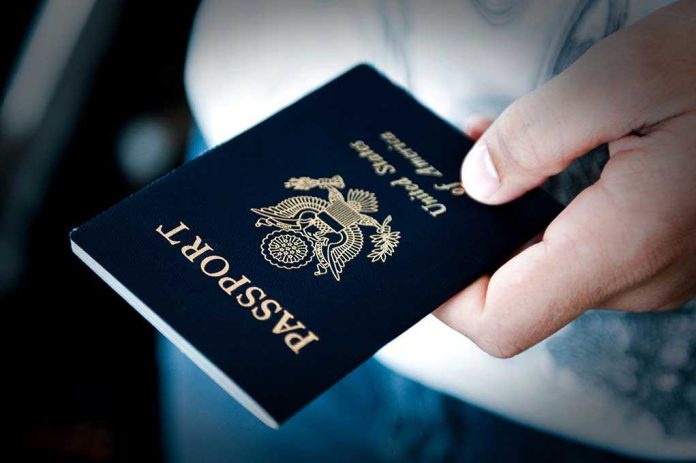
In a landmark decision, the Supreme Court has empowered the Trump administration to enforce a passport policy that mandates the display of biological sex, sparking a heated debate over identity and rights.
Story Overview
- The Supreme Court granted the Trump administration’s request to enforce a controversial passport policy.
- The policy requires passports to show an individual’s biological sex, rather than their gender identity.
- The ruling is a setback for the ACLU, which is challenging the policy in court.
- This decision has significant implications for transgender, nonbinary, and intersex individuals.
The Supreme Court’s Decision
On November 6, 2025, the Supreme Court issued a decision allowing the Trump administration to enforce a policy that requires new passports to display an individual’s biological sex at birth. This ruling stayed a preliminary injunction that had previously blocked the policy’s enforcement. The case, known as *Orr v. Trump*, represents a significant legal victory for the administration and highlights the tension between executive authority and constitutional protections for marginalized groups.
Supreme Court lets Trump block transgender people from choosing passport sex markers https://t.co/fAeRnWBSDm
— Penny Strong (@9e2169147cbe459) November 7, 2025
The policy marks a departure from previous standards that allowed individuals to select their sex marker on passports, including an option for “X” designations. The decision reflects the current Supreme Court’s conservative leanings and its preliminary assessment of the government’s likelihood of success in defending the policy.
Implications for Affected Individuals
The enforcement of this policy has immediate practical consequences for transgender, nonbinary, and intersex individuals seeking to travel internationally. Passports must now reflect biological sex, potentially exposing travelers to increased scrutiny, discrimination, and even violence. The ACLU, which is challenging the policy in court, argues that this requirement violates constitutional rights and endangers the safety of affected individuals.
Jon Davidson, Senior Counsel for the ACLU’s LGBTQ & HIV Project, described the decision as “a heartbreaking setback for the freedom of all people to be themselves.” The ACLU continues to fight the policy in court, emphasizing the need for documents that accurately reflect individuals’ self-identified gender.
Broader Political and Social Context
This passport policy emerges within a larger political and legal landscape concerning transgender rights. The Trump administration’s stance reflects its broader approach to LGBTQ+ issues, emphasizing traditional definitions of sex and gender. The decision underscores the Supreme Court’s receptiveness to executive authority in identity documentation, setting a potential precedent for future cases.
Critics argue that the policy dehumanizes and marginalizes already vulnerable populations. Jessie Rossman, Legal Director of the ACLU of Massachusetts, characterized the policy as “an unlawful attempt to dehumanize, humiliate, and endanger transgender, nonbinary, and intersex Americans.”
Future Legal and Social Implications
The Supreme Court’s decision to allow the policy to be enforced while litigation continues suggests that the court may ultimately uphold it. If so, this could set a significant precedent for federal identity documentation standards. Conversely, if the ACLU prevails, it could strengthen protections for self-identification in government documents and influence state-level policies.
The decision has sparked a wider debate about the role of government in defining identity. As the case continues through the courts, the outcome will likely have lasting implications for both legal standards and the lives of affected individuals. The broader impact on social and political dynamics remains to be seen, particularly concerning advocacy efforts and public opinion on transgender rights.









